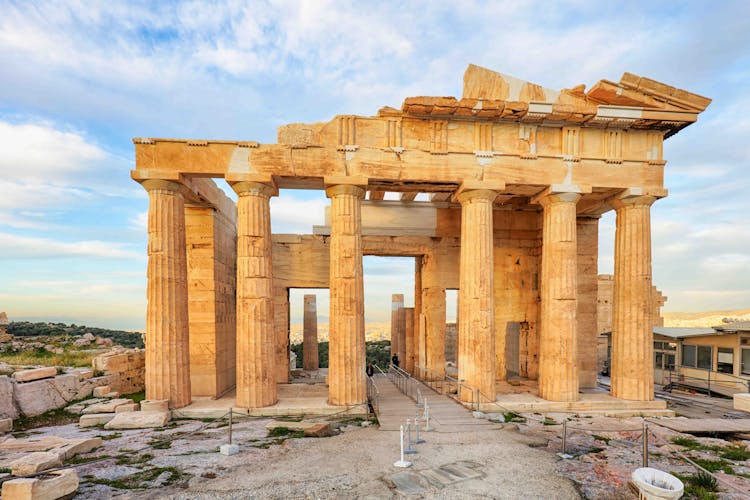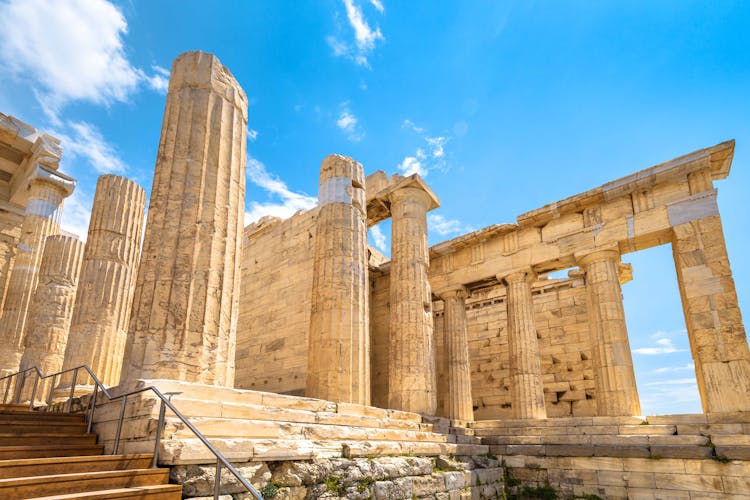A royal retreat in the heart of Madrid, the gardens of the Royal Palace of Madrid are a breath of fresh air amid the city's grandeur. These elegant, manicured landscapes—surrounding Europe’s largest royal palace—are where history, architecture, and nature come together in perfect harmony. Whether you’re looking for a tranquil escape, a picture-perfect stroll, or a chance to admire the palace from a unique perspective, these gardens are a must-visit for anyone exploring Madrid.
A Brief History of the Royal Palace of Madrid Gardens

Origins
The gardens were originally designed in the 18th century as part of the grand vision for the Royal Palace of Madrid, built on the site of the former Alcázar of Madrid. The Spanish monarchy envisioned these gardens as a place of leisure, prestige, and botanical beauty.
Historical significance
Over the centuries, the gardens evolved, expanding and adapting to different artistic styles. They played a key role in royal gatherings, diplomatic meetings, and cultural events, making them an essential part of Spain’s royal history.
Renovations & restorations
Significant renovations have taken place over the years, most notably in the 19th and 20th centuries, when the gardens were modernized and opened to the public. The latest restorations ensure that their historic charm is preserved while offering visitors a majestic green space to explore.
Why Visit the Royal Palace of Madrid Gardens?
- Escape the crowds: While the Royal Palace itself is a popular attraction, the gardens provide a peaceful, less crowded retreat with stunning palace views.
- Architectural & botanical beauty: Marvel at the neatly trimmed hedges, fountains, and sculptures set against the palace’s imposing façade.
- Photography heaven: With royal pathways, reflecting pools, and panoramic views, this is one of the best spots in Madrid for breathtaking photos.
- A touch of history: Walk the same paths that Spanish monarchs once strolled, adding a regal charm to your visit.
- Free entry!: Unlike the palace, the gardens are free to explore, making them a budget-friendly addition to your itinerary.
Recommended tickets
Inside the gardens of the Royal Palace of Madrid
1Campo del Moro Gardens
This lush, expansive park sits behind the palace and is one of Madrid’s best-kept secrets. With rolling green lawns, towering trees, and elegant fountains, it offers a fairytale-like setting where you can stroll just like Spanish royalty once did.
What makes it special? Designed in a Romantic garden style, offering a serene escape from the city.Features peacocks roaming freely, adding a whimsical touch to your visit. Offers one of the best panoramic views of the Royal Palace.

2Sabatini Gardens
Named after the Italian architect Francesco Sabatini, these formal, symmetrical gardens are located on the north side of the palace. They were built in the 20th century and provide an elegant, structured contrast to the more natural landscape of Campo del Moro. What to look for? Geometrically shaped hedges and topiaries create a picture-perfect scene. Reflecting pools mirror the palace, making for stunning photographs. Serene walking paths, ideal for an evening stroll.

3 Fountains & Sculptures
Throughout the gardens, you’ll find ornate fountains and classical sculptures dedicated to Spain’s past rulers and mythological figures. The Fountain of the Tritons in Campo del Moro and the majestic staircases in Sabatini Gardens are must-see features. Why they matter? Each fountain has historical and artistic significance, reflecting different periods of Spanish art. The sculptures of Spanish kings and allegorical figures tell stories of Spain’s monarchy.

4Lush Greenery & Seasonal Blooms
The gardens change beautifully with the seasons. In spring and summer, expect vivid floral displays, while autumn brings a golden-hued wonderland. Even in winter, the gardens offer a peaceful, frosty charm with unobstructed views of the palace.

How to Visit the Royal Palace of Madrid Gardens
Location & entrance
- Address: The gardens surround the Royal Palace of Madrid, located at Calle de Bailén, s/n, 28071 Madrid, Spain.
- Entrances:
Campo del Moro Gardens – Accessible from Paseo de la Virgen del Puerto.
Sabatini Gardens – Entrance near Plaza de Oriente
Best time to visit
- Early morning (before 10 AM): Best for a quiet, crowd-free experience.
- Golden hour (just before sunset): Perfect lighting for dreamy photos.
- Spring & autumn: The best seasons for vibrant floral displays and pleasant weather.
Duration and route
- Recommended visit time: 45 minutes - 1.5 hours (longer if you want to relax and enjoy the scenery).
- Suggested route: Start at the Sabatini Gardens for symmetrical elegance. Walk towards Plaza de Oriente, enjoying the monuments and palace façade. End in the Campo del Moro Gardens, soaking in the royal views and natural beauty.
Facilities & restrictions
- Restrooms available near the palace entrance.
- No food vendors inside, but there are cafés nearby in Plaza de Oriente.
- Photography is allowed, but drones are restricted.
- Dogs not permitted (except service animals).
Tips for Visiting the Royal Palace of Madrid Gardens

- Visit at sunset for golden lighting and the most stunning palace reflections in the ponds.
- Bring a book or picnic – The gardens are a fantastic spot to relax and unwind.
- Wear comfortable shoes – The gardens are expansive, and some paths are slightly uneven.
- Keep an eye out for wildlife – Especially the graceful peacocks in Campo del Moro!
- Pair your visit with the Royal Palace – It’s the perfect pre- or post-palace activity.
Frequently asked questions
The gardens date back to the 18th century, originally designed for Spanish royalty. Over the years, they evolved from private royal retreats to public spaces, reflecting different artistic styles.
Most visitors spend 45 minutes to 1.5 hours exploring the gardens, though you could stay longer if you want to relax.
Yes! Some guided tours combine the Royal Palace interior with the gardens, providing a rich historical context.
Yes, Sabatini Gardens is wheelchair-friendly, but Campo del Moro Gardens has some slopes that may require assistance.
No, entry to both Sabatini and Campo del Moro Gardens is free!


